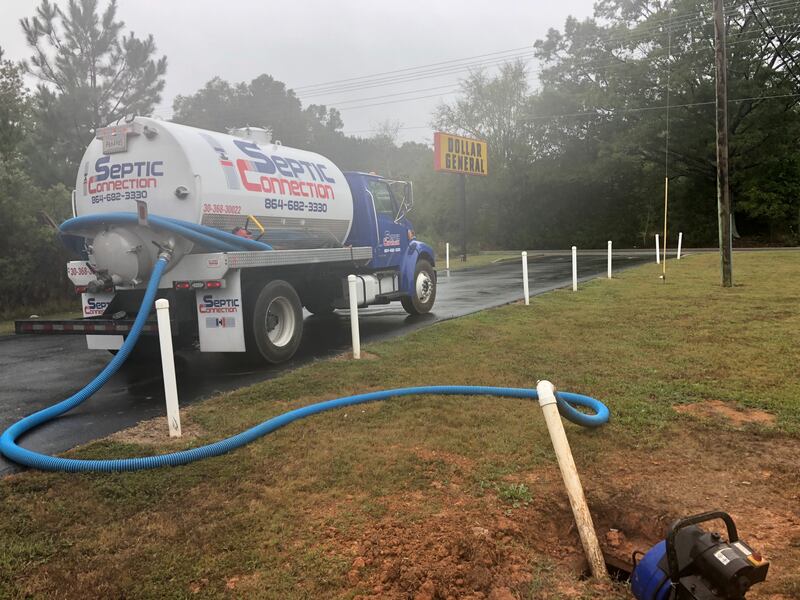Call This Wednesday to Get $25 OFF
Clean Solutions, Dirty Jobs – Done Right. Reliable. Responsive. Remarkable.
Call This Wednesday to Get $25 OFF
Clean Solutions, Dirty Jobs – Done Right. Reliable. Responsive. Remarkable.
Septic systems are vital when managing wastewater in areas without access to a centralized sewer. These systems efficiently treat and dispose of household wastewater on-site. If you have a septic tank installation or replacement project lined up, it’s essential to understand the various septic systems available in the United States. As a trusted septic company, Septic Connection can help you choose a suitable unit for your waste management needs. Here are the different septic systems, each with unique features and benefits.

The septic tank unit is the most basic and common type of waste management system. It has two major components: a septic tank and a drain field. When you schedule a septic tank installation, our experts ensure the wastewater from your home flows into the tank, solid waste settles to the bottom, and liquids move to the drain field for further treatment before being absorbed into the soil. These systems are relatively affordable and can last many years with regular septic tank repair and maintenance.
The conventional septic system, or gravity system, is a traditional septic tank system extension. It relies on gravity to move effluent from the septic tank to the drainfield. This type of system is ideal for properties with suitable soil conditions and proper slopes. Conventional systems are cost-effective, but regular septic tank pumping is critical to remove accumulated solids.
Chamber systems are an alternative to traditional stone and pipe drain fields. Instead of using gravel, they use lightweight plastic chambers to distribute wastewater into the soil. Chamber systems are known for easy installation and efficient effluent distribution. They are preferred in areas with limited space or challenging soil conditions. We recommend hiring a professional septic company to determine if your property suits this system before installation.
The septic system is an onsite waste treatment facility, and it is incredibly reliable. However, the system is only as effective…
Imagine flushing your toilet and then suddenly realizing that your backyard has turned into a swampy mess. This unpleasant experience is…
Soil testing is a critical step in various construction and environmental projects. It provides essential information about the ground conditions, which…
Grease traps are remarkable tools that help keep your establishment clean and free from bad odors. Septic Connection has a…
If you have just moved into a new home or property that relies on a septic system for waste and wastewater…
Drip distribution systems, or drip irrigation septic systems, are designed for areas with soil that have limited percolation capabilities. These systems use a network of tubing and small emitters to distribute effluent evenly across the drain field area. Drip distribution systems provide precise control over effluent dispersal and are suitable for properties with varying soil conditions.
Aerobic treatment units are advanced septic systems that promote the decomposition of organic matter with oxygen. These systems use aeration mechanisms, enhancing waste breakdown and producing higher-quality effluent. ATUs are used when standard septic systems are insufficient because of poor soil or high water tables. They require electricity to operate and regular maintenance.
Mound systems are ideal for properties with challenging soil conditions, such as slow-percolating soil or a high water table. This system builds a mound of sand or gravel above the natural soil surface. Effluent is pumped to the mound, treated and filtered before percolating into the soil. Mound systems provide adequate wastewater treatment if you need frequent septic tank repair or experience constant system failure.
Recirculating sand filter systems enhances the treatment of septic tank effluent before it is discharged into the soil. These systems use a bed of sand to filter and treat the wastewater. Wastewater is recirculated through the sand bed for additional treatment. Recirculating sand filter systems have high treatment efficiency and are suitable for properties with limited space or poor soil conditions.
Choosing the correct septic system for your property is crucial to ensure effective wastewater treatment and environmental protection. Each waste management unit has its advantages and is suitable for specific situations. When planning a septic system installation or replacement project, it’s essential to consider factors such as soil conditions, property size, and local regulations to make an informed decision. Contact us at Septic Connection and schedule a consultation with our experts. At competitive rates, we provide various services, including septic tank pumping, installation, and maintenance.
When septic problems start, many homeowners look for quick and inexpensive solutions. Online videos, store-bought additives, and advice from well-meaning neighbors can make do-it-yourself septic fixes seem appealing. Unfortunately, septic…
Read moreA septic system is one of the most important—and most overlooked—components of a home. It manages wastewater quietly in the background, so many homeowners assume everything is fine until a…
Read more